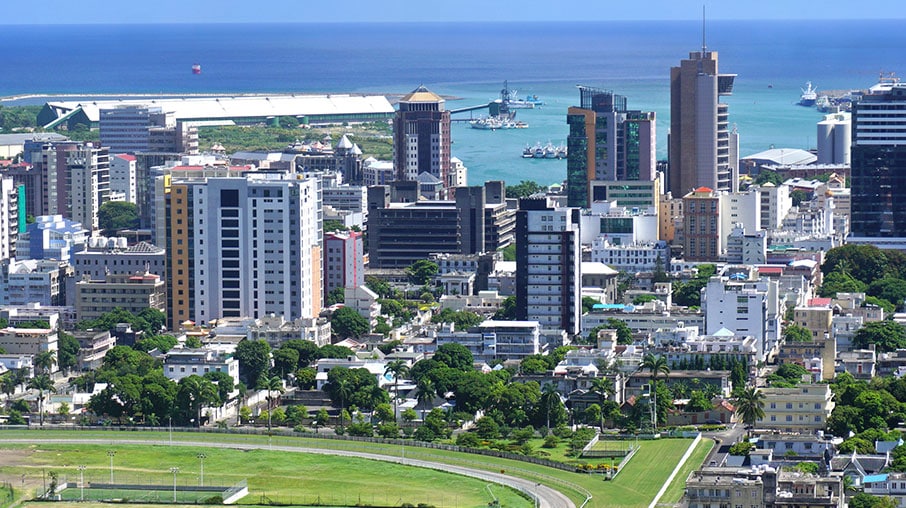Overview
VAT was introduced in Mauritius in September 1998 as a replacement for sales tax. The VAT system has been designed as a simplified model with the aim of eliminating undue reliance on the government’s budget revenue derived from import taxation. Mauritius’ VAT mechanism is governed by the Value Added Tax Act 1998 and the Value Added Tax Regulations 1998.
Release date: May 2023
Scope of VAT |
Value added tax (VAT) is a tax on goods and services. VAT is charged on the supply of goods or services made in Mauritius where it is a taxable supply made by a taxable person in the course or furtherance of any business carried on by them. Supply means:
A taxable supply is made when a taxable person, in the course or furtherance of their business, makes:
A taxable supply includes a supply which is zero-rated but excludes an exempt supply. A taxable person relates to any person who is required to be registered compulsorily for VAT purposes and includes a registered person. A person means an individual, company, société, trust, economic entity or similar organisation, club or association, Ministry or Government department and any local authority. A registered person means a person who is registered compulsorily or voluntarily for VAT purposes. VAT on any taxable supply is a liability to the taxable person making the supply and is due at the time of the supply. |
VAT rates |
Taxable supplies — 15% The standard rate of VAT in Mauritius is 15%. The rate applies to all standard rated supplies of goods and services. A taxable supply includes a supply which is zero-rated, but it does not include an exempt supply. |
Zero-rated supplies — 0% Items of zero-rated supplies are listed under the Fifth Schedule to the VAT Act. A zero-rated supply of services is a service rendered to a person who belongs in a country other than Mauritius and who is outside of Mauritius at the time the service is performed. Some examples of such supplies include, among others:
No VAT is charged on zero-rated supplies, but they are considered as part of taxable supplies. |
VAT registration |
Compulsory registration The VAT Act states that a company is required to register for VAT if the annual turnover of its taxable supplies exceeds or is likely to exceed Rs6m (approx. USD150,000). Some persons as listed in the Tenth Schedule to the VAT Act are also required to compulsorily register for VAT irrespective of their turnover, for example:
However, where the turnover of a company is made up exclusively of zero-rated supplies or zero-rated and exempt supplies, the company is not compulsorily required to register for VAT. Any taxable person who does not apply for compulsory registration shall be liable to pay a penalty of Rs5,000 for every month or part of the month from the taxable period in respect of which they are liable to be registered as a registered person up to the month immediately preceding the month in which the application for registration is submitted. The penalty is capped at Rs50,000. |
Voluntary registration Any person who makes taxable supplies not exceeding Rs6m (approx. USD150,000) in the course and furtherance of their business, may apply to the Mauritius Revenue Authority (MRA) for voluntary registration as a registered person. |
Certificate of registration Upon registration (compulsory or voluntary), the MRA will allocate to the person a VAT registration number and issue them a certificate of registration. |
Group or branch registration No such regulations have been issued to date in Mauritius. |
Non-residents A non-resident person under the Mauritius VAT Act, in the case of an individual, means a person whose permanent place of abode is outside Mauritius and who is outside Mauritius at the time the services are supplied. In the case of any other person, a non-resident:
|
Application for registration A non-resident person will be required to be registered for VAT if they derive income from activities being conducted in Mauritius and either their turnover exceeds the VAT registration threshold or they fall within the persons listed in the Tenth Schedule to the VAT Act. |
Deregistration A VAT registered person may deregister upon cessation of business or if their annual taxable turnover becomes less than Rs6 million. |
Input VAT |
Input tax allowed Any taxable person may take as a credit against its output tax in any taxable period, the amount of input tax allowable to them during that period. Input tax is deductible where:
|
Input tax expressly denied No input tax is allowed as a credit in respect of items such as:
|
Input VAT allowed in proportion Where a registered person makes fully taxable supplies (i.e. standard and zero-rated supplies), it should be able to recover the full amount of input VAT according to the VAT Act. Also, where goods or services are used to make both taxable supplies and exempt supplies, the credit in respect of those goods or services shall be allowed in the proportion of the value of taxable supplies to total turnover. |
Preregistration or post-deregistration VAT Preregistration A person may take a credit for input tax on the goods forming part of their trading stocks and capital goods (being plant, machinery or equipment of a capital nature), provided these were acquired within a period not exceeding three months immediately preceding the date of their registration. Post deregistration Where the registration of a registered person is cancelled the person must:
Where the registration of a person is cancelled and the return for the last taxable period of that person shows an excess of input tax over output tax, the excess of input tax over output tax will not be refundable. |
Is there recovery of VAT by non-residents? Where VAT paid supplies of taxable goods are made to a visitor, an approved person or the MRA will refund to the visitor the VAT paid on the goods, after deducting specific administrative charges. A visitor means a person holding a foreign passport and a valid ticket for travel by air or sea to a foreign airport or port. |
Output tax |
Brief description of output tax Output tax means tax that is due on taxable supplies. Output tax is computed by applying the VAT rate attributable to the taxable value of the supply. The VAT rate attributable to the supply will depend on whether the supply is taxable at the standard rate or at the zero rate. |
Exempt supplies Businesses that deal exclusively in exempt supplies are not required to register for VAT and cannot claim relief from input tax on the goods and services that they consume. The exempt supplies include, but are not limited to:
|
Zero-rated supplies A zero-rated supply is treated as a taxable supply and no VAT is charged on such supply. Zero-rated supplies include, but are not limited to:
|
Advertising prices Where goods are advertised or promoted, the retail price should be inclusive of VAT, together with the words ‘VAT INCLUSIVE’. In the case where VAT is not chargeable on the goods, the selling price of the goods should indicate the words ‘VAT NIL’. |
International trade |
Goods The term ‘import’ under the Mauritius VAT Act means to bring or to cause to be brought into Mauritius. A person who imports goods, other than goods which are exempt from VAT under the First Schedule to the VAT Act or which are zero-rated, has to pay VAT on those goods. VAT is charged at the rate of 15% on the value of goods imported. The value of goods imported includes:
Note that no VAT is payable on goods imported into a freeport zone. Where a company in the freeport zone makes a taxable supply to a person operating outside the freeport zone, such supply is considered as an import of goods and is subject to VAT. |
Services There is no specific legislation governing VAT on import of services. However, Section 14 of the VAT Act governs the reverse charge mechanism on the supply of services received from abroad. Where a person who does not belong in Mauritius and is not VAT registered makes a taxable supply of services which are performed or utilised in Mauritius, to a registered person, then all the same consequences shall follow under the VAT Act as if the registered person had themself supplied the services in Mauritius and that supply were a taxable supply. An export of services includes a supply of services to a person that belongs in a country other than Mauritius and who is outside Mauritius at the time the services are performed. A person is considered as belonging in a country other than Mauritius if they:
|
Place, time and value of supply |
Place of supply There is no specific legislation in the VAT Act governing place of supply. However, the place of supply would be determined by reference to the place where the goods or services are being used or consumed. Where goods or services are being used or consumed in Mauritius, the place of supply would be Mauritius. |
Time of supply A supply of goods or services shall be deemed to take place, at the earlier of
|
Value of supply If the supply is for a consideration in money, the value is taken to be such amount, including the VAT chargeable. Where a supply does not consist (or does not consist wholly) of money or is not made in the course of an arm’s length transaction, the value of the supply is taken to be the open market value of the supply. The open market value of the supply would be the value of the supply had it been made under normal commercial terms. The value of any taxable supply is required to be expressed in Mauritian currency. |
VAT compliance |
Accounting basis and tax period Accounting year is defined under the VAT Act as follows:
A taxable period, in relation to a taxable person, means:
|
Returns and payment of VAT At the end of its taxable period (either monthly or quarterly), a VAT registered person must submit a VAT return to the MRA specifying the following:
Where a registered person is required to submit monthly VAT returns, they must also submit electronically a list of taxable supplies made to any person, other than supplies by retail, showing the invoice number and value of supply. |
Interest and penalties If a VAT registered person does not submit their VAT return by the due date, a penalty of Rs2,000 per month (or part of the month) is payable until the return is submitted to the MRA. The penalty for late submission is capped at Rs20,000. Where the company is a small enterprise, the penalty is capped at Rs5,000. Late payment of tax carries a penalty of 10% of the tax liability. Where the company is a small enterprise, the penalty for late payment of tax is reduced to 2% of the tax liability. Interest on tax unpaid is at the rate of 1% per month from the date the tax remained unpaid up to the date of payment. Where an amount has been refunded in excess, the interest shall be at the rate of 1% per month from the date of the repayment up to the date of payment of the amount claimed. Where the tax authorities find out that a registered person has carried forward an excess amount of input tax, a penalty of 20% of the amount over-claimed is applicable (capped at Rs100,000) and the penalty is deemed to be output tax and is included in the person’s next VAT return. Where the tax authorities find out that a registered person has claimed repayment in respect of an input VAT amount overclaimed, a penalty of 20% of the amount overclaimed is applicable (capped at Rs200,000). |
Refunds VAT credits are usually carried forward to offset against future VAT liabilities. However, where a registered person is mainly engaged in making zero-rated supplies and their return shows an excess amount, they may make a claim for repayment of the whole excess amount. A person is considered as mainly engaged in making zero-rated supplies where at least 80% of their annual turnover relates to zero-rated supplies. |
Repayments A repayment of tax is also available where a registered person has an excess amount of input tax that includes input tax exceeding Rs100,000 on:
A repayment is required to be processed within 45 days where:
|
Assessments, objections and review of assessments |
Objections and appeals Tax authorities may make an assessment (by way of written notice) of the tax due and payable or the excess amount to be carried forward in situations where:
Where a person is not agreeable to an assessment made by the tax authorities, they may lodge an objection within 28 days of the date of the notice and pay 10% of any amount claimed in the assessment. The notice of objection must clearly specify the grounds of objection, the amendments to be made to correct the decision and the reason for the amendments. After considering the objection, the tax authorities will:
The tax authorities will then give a notice of determination to the person under assessment. If the person is aggrieved by the decision of the tax authorities, they may lodge an appeal to the Assessment Review Committee (ARC). At the ARC level, the person may reach an agreement with the tax authorities by conducting informal meetings. Otherwise, the case is heard before the Chairman of the ARC. Where a person is still not satisfied by the decision of the ARC, they may reach out to the Supreme Court of Mauritius or to the Privy Council of the United Kingdom, which is the final court of appeal in Mauritius. The tax authorities in Mauritius have equally set up an Alternative Tax Dispute Resolution (ATDR) Panel to resolve tax disputes. The ATDR acts as a third party to determine the dispute. The following conditions are applicable for review under ATDR:
The application is referred to the ATDR Panel within one month of receipt. The decision of the ATDR is finalised in less than six months from the date the application is referred to the panel. |
Time limits Except in cases of wilful neglect, evasion or fraud, a person is not required to furnish information or to produce any books or records after five years immediately following the last day of the taxable period in which any related transaction took place. |
Withholding VAT |
Appointment of withholding VAT agents There is no withholding VAT agents concept in Mauritius. |
Withholding VAT exemption There is no withholding VAT exemption concept in Mauritius. |
Withholding compliance There is no withholding VAT in Mauritius. |
Refunds There is a time limit for refunds due to persons in residential buildings, houses or apartments. Where the tax authorities are satisfied that a person above is entitled to a refund, the MRA will process the refund within 30 days of the date of receipt of the application. Where the refund is processed after three months of the application, the refund should carry interest, free of income tax, at the Repo rate determined by the Bank of Mauritius. |
VAT record-keeping |
Tax invoices A VAT invoice must be issued by any registered person who makes a taxable supply. A VAT invoice should specify all of the following:
Where a person issues a VAT invoice, they must keep legible copies of the invoice, electronically or otherwise, for a period of at least five years after the transaction is completed. |
Record-keeping A registered person must keep a full and true written record in French or in English (electronically or otherwise) of every transaction they make in the course of their business. The record should be kept for a period of at least five years after the completion of the transaction to which it relates. |
Specific VAT rules |
Banking industry Banks holding a banking licence under the Mauritius Banking Act 2004 in respect of their banking transactions other than with non-residents and corporations holding a Global Business Licence (GBL) are compulsorily required to be registered for VAT. No input tax is allowed on goods and services used by banks for providing banking services as well as on banking services provided by banks other than to non-residents and corporations holding a GBL. The special levy applicable on banks is now governed by the VAT Act, instead of the Income Tax Act. Effective for the accounting period ending on or after 1 January 2019 and every subsequent accounting period, banks are subject to a special levy on their leviable income at the following rates:
The special levy is payable to the MRA within 5 months from the end of the bank’s accounting period. A penalty of 5% is applicable on late payment of levy, together with interest at the rate of 0.5% per month or part of the month during which the levy remains unpaid. |
Sale or transfer of immovable property and land The sale or transfer of an immovable property, a building or part of a building, apartment, flat or tenement is an exempt supply where it is made:
|
Deferred payment of VAT at importation The payment of VAT at importation on capital goods, being plant and machinery, imported by a VAT registered person, can be deferred under Section 9A of the VAT Act. Effective 1 October 2018, a VAT registered person is not required to pay VAT on importation of capital goods at Customs if:
Where the payment at importation has been deferred, the VAT registered person must declare the deferred VAT as being output tax in their VAT return for the taxable period in which VAT is deferred. The deferred output tax is deemed to have been paid. |
Refund of VAT to event organisers An event organiser registered with the Economic Development Board (EDB) may apply for a refund of VAT incurred in respect of accommodation costs incurred by visitors attending a qualifying event. A qualifying event means a business meeting, conference or wedding attended by 100 or more visitors staying for a minimum of three nights in a hotel in Mauritius. Subject to the application being in order, the MRA shall process the refund within 30 days of the date of receipt of application. |
Other indirect taxes |
Import duties Import duty is imposed on goods imported into Mauritius. The rate will depend on the type of good as set out under the Integrated Tariff schedule to the Customs Act 1988. The import duty rates range from 0% to 30%. |
Excise duties Excise duties are governed by the Excise Act 1994 and are imposed on excisable goods, as defined under the First Schedule to the Act. Excise duty must be accounted for on certain manufactured goods, including alcoholic and non-alcoholic beverages, soft drinks, water and juices, milk, tobacco, firecrackers and motor vehicles. |
Liability to VAT on digital or electronic services The Finance Act 2020 introduced a new section on the liability to VAT on digital or electronic services. VAT is chargeable on any digital or electronic service supplied by a foreign supplier to a person in Mauritius. The conditions governing this new provision are yet to be prescribed through the VAT Regulations. A foreign supplier means a person who:
Digital or electronic services include any service supplied by a foreign supplier over the Internet or an electronic network which is reliant on the Internet or which is dependent on information technology for its supply. |
Notice of appointment by appointed person
This section has been introduced in the Finance Act 2020. Effective 7 August 2020, when an administrator, receiver or liquidator, is appointed to manage or wind up the business of any taxable person, the former shall give notice of their appointment to the MRA within 15 days of appointment.
























